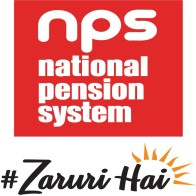Introduction
If you wish to withdraw a part of your accumulated pension without exiting/closing the individual pension account, you may opt for partial withdrawal, subject to the prescribed eligibility and limits.
Eligibility for Partial Withdrawal
You are eligible for making a partial withdrawal request only if you have been an NPS subscriber for at least 3 years (from the date of your joining NPS).
You may also utilize partial withdrawal limits to settle a financial obligation against the lien/charge marked on your individual pension account.
Frequency and Limits of Partial Withdrawal
Partial Withdrawal before Age 60 / Superannuation
You can make a partial withdrawal up to a maximum of 4 times from each Individual Pension Account prior to attaining age of 60 years or prior to superannuation. In each instance, you can withdraw up to 25% of your own contributions in that specific account. A minimum gap of 4 years is required between successive partial withdrawals within each account.
Partial Withdrawal after Age 60 / Superannuation
For subscribers who remain in NPS beyond the age of 60 years or beyond the date of superannuation/retirement, partial withdrawals can be availed from each Individual Pension Account with a minimum interval of 3 years between successive partial withdrawals within that specific account.
Circumstances for Partial Withdrawal
(a) Higher education of the subscriber's children, including a legally adopted child;
(b) Marriage of the subscriber's children, including a legally adopted child;
(c) One time withdrawal for purchase or construction of a residential house or flat in subscriber's own name or in joint name with his or her legally wedded spouse. However, if the subscriber already owns a residential house or flat (other than ancestral property), no withdrawal shall be permitted;
(d) Medical treatment or hospitalization of the subscriber, spouse, children (including legally adopted children), or parents;
(e) Medical and incidental expenses arising from disability or incapacitation suffered by the subscriber;
(f) Settlement of a financial obligation availed from a regulated financial institution against a lien or charge marked on the individual pension account.
Withdrawal Process
You can submit a withdrawal request along with relevant documents to the POP / Nodal Office for processing your withdrawal claim. However, if you are suffering from any illness, the withdrawal request can be submitted by any of your family members. Processing shall be carried out through the CRA system in accordance with the guidelines/circulars issued by the Authority from time to time.
Withdrawal from Tier-II account
The rules for withdrawing from a Tier-II account are different from those for a Tier-I account. As per the extant regulations, a subscriber having a valid and active Tier-II account can withdraw the accumulated wealth either in full or part, at any time by applying for such withdrawal. There shall be no limit on such withdrawals till the account has sufficient amount of accumulated pension wealth to take care of the applicable charges and the withdrawal amount. However, Tier II account will automatically stand closed upon the closure of Tier I account.
Withdrawal from Tier-II Tax Saver Scheme
Withdrawal from Tier-II Tax Saver Scheme for Central Government Employees is not allowed before the completion of lock-in period specified under the said scheme except in case of death.
View Exits & Withdrawals Regulations


